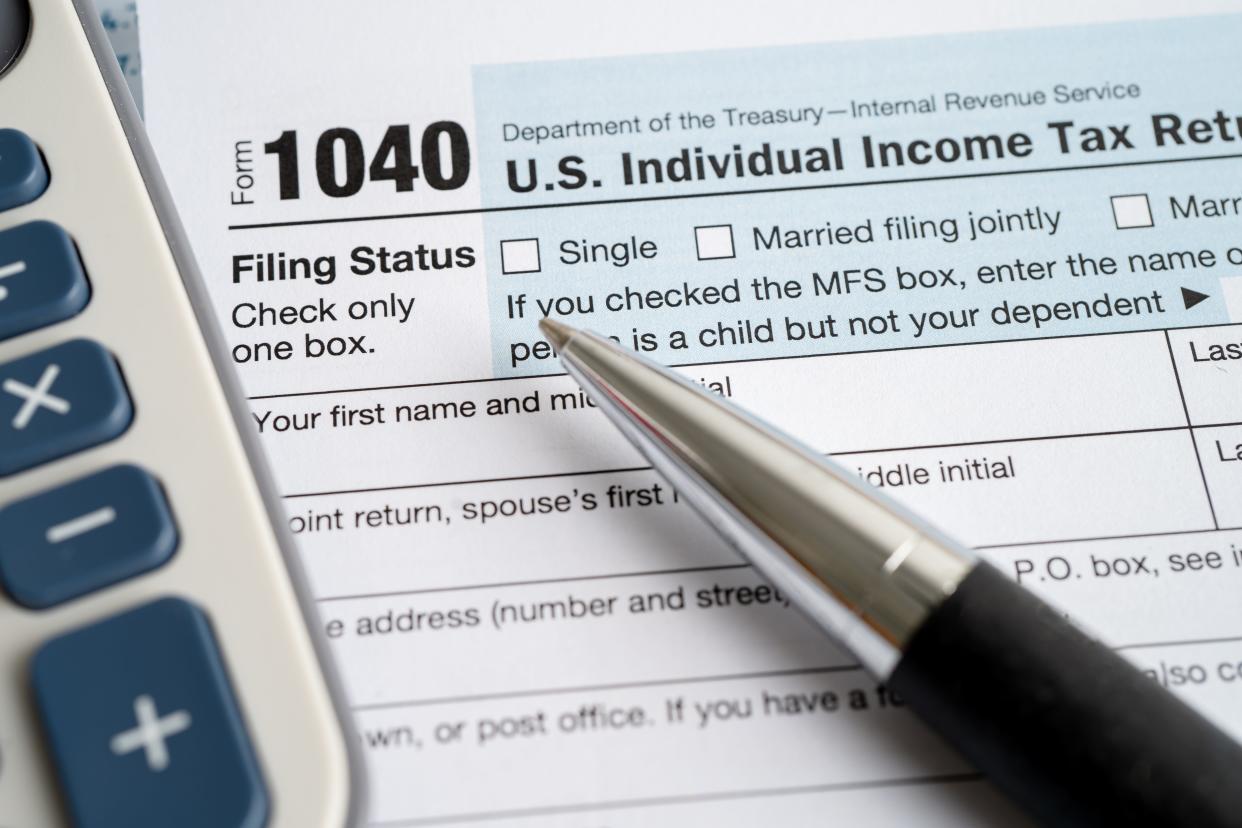No more state income tax? Ohio Republicans unveil plan to scrap $10B revenue source

A group of Ohio Republicans unveiled a plan Tuesday to scrap the state's personal income tax by 2030, a move that would cut a major source of funding for schools, Medicaid and more.
Lawmakers will introduce two bills in the House and Senate that would gradually reduce, then eliminate the income tax and get rid of the commercial activity tax imposed on certain businesses. The move comes less than a year after lawmakers passed a new budget that flattened Ohio’s income tax brackets from three to two.
Ohioans earning up to $100,000 per year now pay 2.75%, and everyone above that salary pays 3.5%. Those who make less than $26,050 pay no state income taxes.
The goal is to make Ohio "the most business-friendly state in the nation and to financially dominate the rest of the country," Sen. George Lang, R-West Chester, said.
Proponents of the plan contend it will make Ohio more competitive. A 2023 report from Americans for Prosperity Ohio, a group that promotes conservative policies, said the explosion of remote work makes it easier for Ohioans to leave the state in pursuit of a lower tax burden.
"Ohio must heed these examples and join other states already engaged in aggressive tax reforms, or risk falling farther behind," the report stated. "Employers and employees will continue to look elsewhere for economic and competitive advantages."
How would this work?
But an important question remains: How would the state pay for this?
Ohio's income tax generates over $10 billion each year for the general revenue fund, according to an analysis of the state's two-year budget. That's less than the $11 billion allocated for K-12 education during the 2024 and 2025 fiscal years. The fund also covers mental health facilities, development projects and prison operations.
The commercial activity tax, or CAT, brought in $2.5 billion in the 2022 fiscal year before credits were applied, the Ohio Department of Taxation reported. The two-year budget eliminated the CAT for most businesses that pay it, leaving only those with taxable receipts over $3 million on the hook.
The two bills offer different formulas for lowering the income tax over time, but both have the rate at 0% by 2030. The CAT would also go away at that point. Rep. Adam Mathews, R-Lebanon, said lawmakers will hold town halls across the state to get input from residents and business leaders.
The measure would not apply to local income taxes.
If passed, Ohio would join the ranks of nine other states − including Florida, Nevada and Texas − that don't have income taxes. Those states rely heavily on sales taxes to bring in revenue and receive additional boosts from gaming, tourism and oil. Ohio currently gets over $13 billion from its sales tax.
Backers say Ohioans will be more likely to spend money if there's no income tax. But critics contend the plan could fall on the shoulders of people with lower incomes, either through an increased sales tax or cuts to key government services.
Mathews noted that Ohio recently eliminated the sales tax on products for babies and children, such as diapers and cribs.
"We’re going to protect those most vulnerable," Mathews said, "and we can find a way to balance the budget while keeping those crucial features in place."
Haley BeMiller is a reporter for the USA TODAY Network Ohio Bureau, which serves the Columbus Dispatch, Cincinnati Enquirer, Akron Beacon Journal and 18 other affiliated news organizations across Ohio.
This article originally appeared on Cincinnati Enquirer: Ohio Republicans want to get rid of state income tax, business tax

